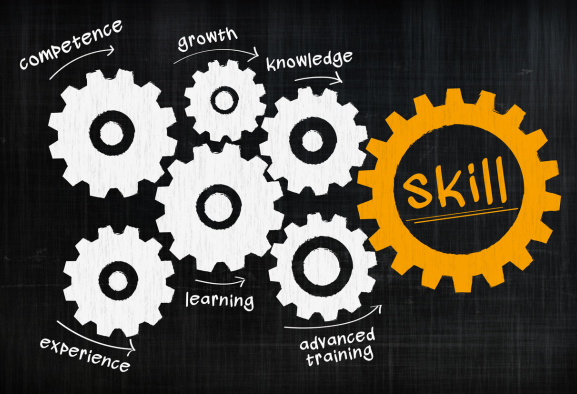Introduction
The field of Information Technology (IT) is often associated with technical skills like programming, network management, and system design. However, in today’s dynamic workplace, soft skills are becoming equally significant, especially in IT recruitment. While technical abilities determine whether an individual can perform the job, soft skills decide how well they can collaborate, communicate, and contribute to the organization’s success.

Understanding Soft Skills

Soft skills, also known as interpersonal or people skills, refer to a set of non-technical abilities that influence how an individual interacts with others. These include communication, teamwork, problem-solving, adaptability, emotional intelligence, and time management. In IT roles, where technical expertise is often the focus, the integration of strong soft skills helps create a more productive and cohesive work environment.
The Role of Soft Skills in IT Recruitment
1. Enhancing Team Collaboration
IT projects often require teamwork. Whether it’s software development or troubleshooting network issues, IT professionals need to work cohesively with diverse teams, including developers, testers, project managers, and stakeholders. A candidate with excellent communication and collaboration skills can facilitate seamless teamwork, ensuring projects stay on track.


2. Improving Client Interactions
Many IT professionals interact directly with clients to understand their requirements or provide technical support. Soft skills like active listening, empathy, and clear communication are crucial for building trust and delivering exceptional service. These interactions often determine client satisfaction and the overall reputation of the company.
3. Facilitating Leadership Development
As IT professionals advance in their careers, they frequently move into leadership positions. Leadership requires more than technical expertise—it demands emotional intelligence, decision-making, and the ability to motivate a team. Identifying soft skills early during recruitment ensures companies can groom future leaders.


4. Adapting to Changing Technologies
The IT industry is constantly evolving, with new tools and technologies emerging regularly. Professionals with adaptability and a growth mindset are more likely to embrace change, learn new skills, and remain competitive. These traits are invaluable in today’s fast-paced digital landscape.
5. Reducing Workplace Conflicts
Strong interpersonal skills help minimize misunderstandings and conflicts within teams. Employees with high emotional intelligence can navigate workplace dynamics, address issues constructively, and contribute to a harmonious work environment.

Benefits of Prioritizing Soft Skills in IT Recruitment

Higher Employee Retention
Employees who fit well with the company culture and communicate effectively are more likely to stay with the organization. By hiring candidates with strong soft skills, companies can reduce turnover rates and maintain a stable workforce.
Increased Productivity
A collaborative and communicative team operates more efficiently. Employees who can articulate ideas clearly, manage their time well, and adapt to challenges often contribute to higher productivity.


Better Problem-Solving
IT professionals often encounter unexpected challenges. Soft skills like critical thinking and creativity enable them to analyze problems, brainstorm solutions, and implement them effectively.
Enhanced Innovation
Creativity flourishes in workplaces where people feel appreciated and their voices are acknowledged. Employees with strong interpersonal skills can share ideas, accept feedback, and collaborate on innovative solutions, driving business growth.

Key Soft Skills IT Recruiters Should Look For

Communication Skills
The ability to convey technical information in simple terms is vital in IT. Seek candidates who can convey information clearly to both technical teams and non-technical stakeholders..
Teamwork
IT professionals often work in cross-functional teams. Recruiters should prioritize candidates who demonstrate a collaborative attitude and the ability to work well with others.


Problem-Solving
The IT industry is filled with challenges that require quick thinking and innovative solutions. Candidates with strong problem-solving abilities are invaluable assets.
Adaptability
As technologies evolve, IT professionals must be willing and able to learn new tools and methodologies. Look for individuals who show a proactive approach to skill development.


Time Management
IT projects often come with tight deadlines. Recruiters should seek candidates who can prioritize tasks effectively and manage their time efficiently.
Emotional Intelligence (EQ)
EQ includes self-awareness, empathy, and the ability to manage emotions. It plays a significant role in fostering teamwork and maintaining positive workplace relationships.

Challenges in Assessing Soft Skills

Subjectivity in Evaluation
Unlike technical skills, which can be measured through tests, soft skills are subjective and harder to quantify. Recruiters need structured methods to evaluate these traits.
Bias in Assessment
Personal biases can influence the evaluation of soft skills. It’s essential to use standardized processes to ensure fair assessments.


Overemphasis on Technical Skills
IT recruitment often prioritizes technical qualifications, overshadowing soft skills. Balancing the two is crucial for hiring well-rounded candidates.
How to Assess Soft Skills in IT Recruitment
Behavioral Interview
Encourage candidates to provide examples of how they’ve managed particular situations in their previous roles. For example, you might ask, “Can you recall an instance where you effectively resolved a conflict within a team?” can provide insights into their interpersonal abilities.


Group Activities
Conduct group exercises or problem-solving tasks during the recruitment process. These activities reveal how candidates interact with others, contribute to discussions, and handle disagreements.
Role-Playing Scenarios
Simulate real-life workplace situations to observe how candidates respond. For example, a scenario involving a dissatisfied client can test their communication and problem-solving skills.


Psychometric Tests
Use personality and emotional intelligence assessments to evaluate traits like empathy, adaptability, and teamwork.
Reference Checks
Speak with previous employers or colleagues to gain insights into the candidate’s interpersonal skills and workplace behavior.

Integrating Soft Skills into the Recruitment Strategy

Define Required Soft Skills
Identify the key soft skills necessary for each IT role. For example, a client-facing position may require stronger communication skills, while a project manager role may prioritize leadership abilities.
Update Job Descriptions
Clearly outline the desired soft skills in job postings. This sets expectations for candidates and attracts individuals who align with the company culture. If you are looking for the best IT staffing company in Surat, ensure they understand these requirements and integrate them into their processes.


Train Hiring Teams
Provide training to hiring managers and recruiters on assessing soft skills effectively. This includes recognizing unconscious biases and using structured evaluation methods. Partnering with the top IT recruitment agency in Surat can also streamline this process by leveraging their expertise.
Promote Continuous Development
Encourage employees to enhance their soft skills through workshops, training programs, and mentoring. This ensures ongoing professional growth and strengthens the workforce.

Conclusion
In the IT industry, where technical expertise often takes center stage, soft skills are the unsung heroes that drive collaboration, innovation, and success. By recognizing the importance of soft skills in recruitment, companies can build a balanced and dynamic workforce that excels in both technical and interpersonal domains.
FAQs:
Why are soft skills important in IT recruitment?
Soft skills are essential in IT recruitment because they enhance teamwork, improve communication, and foster a collaborative work environment. They ensure that technical professionals can effectively interact with clients, colleagues, and stakeholders.
How can recruiters evaluate soft skills in IT candidates?
Recruiters can assess soft skills through behavioral interviews, role-playing scenarios, group activities, and psychometric tests. These methods provide insights into a candidate’s interpersonal abilities and adaptability
What are some key soft skills IT professionals should possess?
Key soft skills for IT professionals include communication, teamwork, problem-solving, adaptability, time management, and emotional intelligence. These skills complement technical expertise and improve overall performance.
How do soft skills impact workplace productivity?
Soft skills promote better communication, reduce workplace conflicts, and encourage efficient collaboration, all of which contribute to higher productivity and a positive work environment.
Why should companies partner with IT staffing agencies in Surat?
Partnering with the best IT staffing company in Surat or the top IT recruitment agency in Surat helps organizations find candidates with the right balance of technical skills and soft skills, ensuring a successful and long-term hire.



Leave a Reply